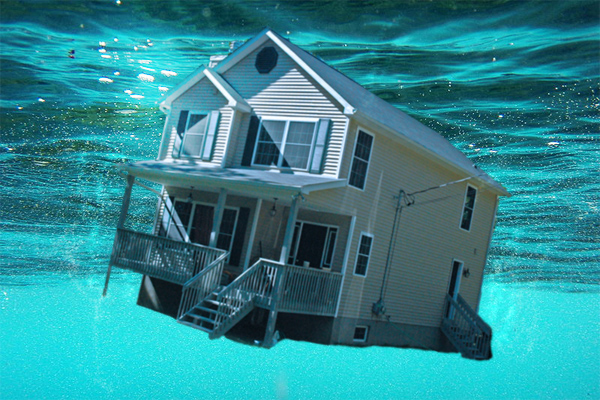Recent Boston North Shore housing statistics — included as part of third quarter housing results reported by Zillow –– show that roughly a million U.S. homeowners finally owe less than their homes are worth.
Water Receding in Boston North Shore Housing Market?

According to the Zillow report, the negative equity rate among homeowners in the U.S. dropped to 13.4%. That’s a 1% decrease from results compiled during the second quarter. The negative equity rate was 16.9% a year ago. Historically, the expected norm is a negative equity rate of 5% or less.
Housing experts say the quick rise in home values have helped the negative equity improvement. Home prices went up during October, increasing 6.8% from the same month a year ago. Nationwide, the home price increases have collectively lowered negative equity to almost $60 billion in the last quarter.
Despite these remarkable improvements, negative equity is still higher than it should be. And while a larger number of borrowers are now able to refinance because of increased values, a huge number of homeowners are still underwater. Analysts estimate over 6.5 million homeowners owe more on their mortgages than their home is worth. In addition, roughly 30% of U.S. homeowners with mortgages are still technically in a negative equity position. They lack the needed equity to make a down payment on their next home or can’t afford to sell their current home and move.
Some markets throughout the U.S. are faring better than others. Prices vary across the country and the recovery may be slower in some areas. Effective negative equity rates in U.S. housing markets range from a low of 8% to a high of over 30%.
A market with a higher negative equity rate has a smaller number of houses on the market. This usually impacts first-time buyers the hardest, since negative equity usually affects lower-priced homes. The nation’s supply of affordable homes for sale is short overall, but especially so for entry-level or “starter” homes. Boston North Shore housing experts agree the biggest obstacle to a continued housing recovery is the lack of homes for sale.
With the number of repeat buyers continuing to shrink over the past ten years, there are challenges ahead. Tighter credit standards — including requiring higher FICO credit scores — have made it harder for many buyers to qualify for loans to buy larger or higher-priced homes. A decade or more ago, homeowners trading up to another home were in the 30-40 age range. Today they are much older, in the 50+ age range.
The housing outlook, therefore, is of concern to some. Inventory continues to drop resulting in a rise in home prices. And while home equity is improving, the gains often have a negative impact on the overall health of the Boston North Shore housing market.
For additional information and more articles on the Boston North Shore housing market, see the right side of your screen under Boston North Shore Real Estate Categories. We also post daily on Facebook and Twitter, too.
